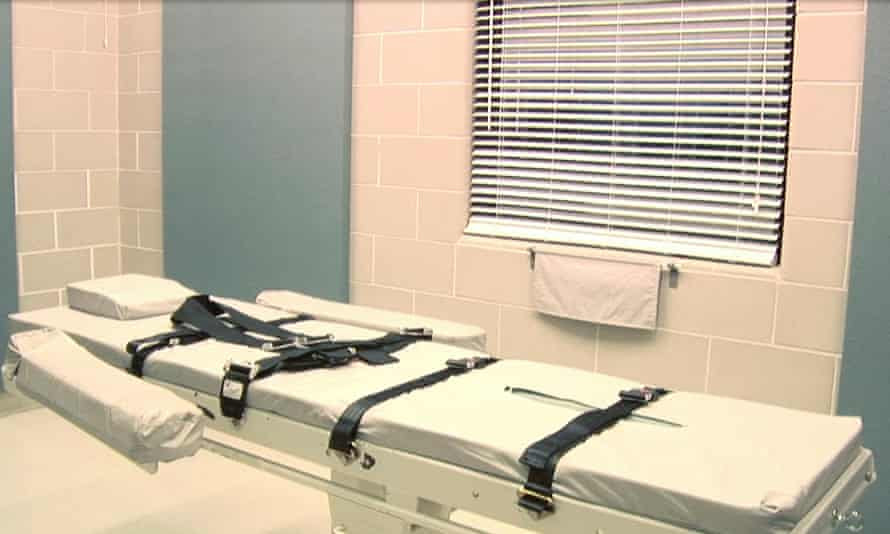Arizona intends to resume executing death row inmates in gas chambers with Nazi-era chemicals, according to a report.
The Arizona Department of Corrections, Rehabilitation & Reentry has spent thousands of dollars “refurbishing” gas chambers for executions, according to a report in The Guardian, which obtained government documents through public records requests.
Among the purchases, the documents showed, was $2,000 to buy the ingredients to make hydrogen cyanide — a gas used by Nazis at Auschwitz.
ABC News has not independently verified the contents of said documents. The Arizona Department of Corrections, Rehabilitation & Reentry didn’t respond to several requests for comment from ABC News.
The agency told The Washington Post in a statement that it was “prepared to perform its legal obligation and commence the execution process as part of the legally imposed sentence, regardless of method selected.”
The state currently executes inmates via lethal injection and has 119 people on death row, according to the Death Penalty Information Center, a nonpartisan nonprofit that tracks death row inmates.
Arizona has executed 37 people since 1992, according to state records.
Robert Dunham, executive director of the Death Penalty Information Center, told ABC News he was appalled by the reports of using hydrogen cyanide gas for executions, given its well-known ties to the Holocaust.
“If they say, ‘We’ll carry out the law because it’s the law,’ that’s a bit like saying ‘We’re just following orders,’ and we know where we’ve heard that before,” Dunham said. “If they say they were aware of the history and they didn’t care, that’s even worse.”
Executions in gas chambers are controversial due to questions surrounding how much additional pain and suffering is inflicted before an inmate dies, according to Dunham.
The last gas chamber execution in the U.S. was in Arizona in 1999. The inmate, Walter LaGrand, choked and gagged for 18 minutes before dying, Dunham said.
While some states have prohibited the use of certain execution methods, no method is outright banned nationwide. Dunham noted that some court cases argued methods like the electric chair or gas chamber are unconstitutional and were struck down in state courts.

The Supreme Court hasn’t ruled on such a case. State lawmakers ultimately dropped the contested execution method before judges made a decision.
Dunham said if Arizona goes forward with using the hydrogen cyanide gas, it likely will lead to a new court battle.
He noted Arizona’s current law only allows for sodium cyanide for executions. Such a distinction resulted in a stay on the 2015 execution of Richard Glossip after it was discovered the Oklahoma Corrections Department used an unauthorized drug on another inmate.
“States have proven themselves capable of botching almost everything when it comes to executions. They’ve also proven themselves captable of blatantly disregarding the law,” Dunham said. “Nothing about this helps their trustworthiness in administering capital punishment.”
The news out of Arizona come as states have announced changes to capital punishment programs. Earlier this year, Virginia’s state Legislature voted to repeal the death penalty, and other statehouses, including Wyoming, have debated similar bills.
At the same time, South Carolina’s legislature approved a bill that brought back firing squads and the electric chair as viable options.
Dunham said recent trends have shown that juries and judges have been moving to issue fewer death penalty sentences around the country, reflecting changing opinions of many Americans.
In 1994, 80% of polled Americans said were in favor of capital punishment, but by September 2020 that figure had shrunk to 55%, according to Gallup.
Dunham said states using “barbaric” execution methods may tip those scales further.
“Many Americans who support the death penalty in theory object to its barbarity,” he said. “When states move to clearly barbaric methods of killing prisoners, the public doesn’t want to be associated with that.”



Comment here